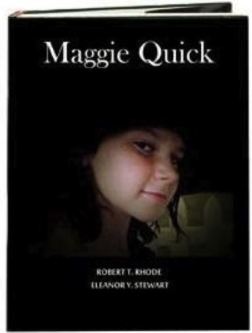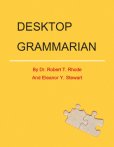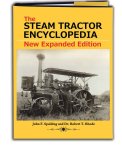While dealing with the etymology of the adjective bad, I realized that an essay on good would be vapid. The picture in Germanic and Slavic with respect to good is trivial, while the word’s ties outside those two groups are bound to remain unclear. Especially troublesome is Greek agathós “good,” from which we have the given name Agatha.
The post Playing God, Chapter 1 appeared first on OUPblog.
 .
.
Maggie Quick
by Robert T. Rhode & Eleanor Y. Stewart
Book Factory 2011
978-1-59672-107-4
Age 8 to 12 360 pages
.
“Maggie Quick is a nine-year-old in a small Irish-American town in the Midwestern United States. Irish immigrants to the U.S.A. brought forms of witchcraft with them. Maggie discovers that she has special powers and that she alone must try to save her village from destruction by evil forces. By embracing nature and by trusting her instincts, she begins to transcend the restrictive society surrounding her. She pours out her hopes, her questions, and her fears to three wise women, who guide her toward understanding—in the nick of time!”
Opening
“Maggie wafted down the walk. She hadn’t meant to. She knew that such things were possible in fairy tales, but not in real life—especially hers. Here’s how it happened”
The Story
Maggie Quick learns she has special powers, handed down from generations of witches. Her grandmother, her great aunt, and Winnie, an ostracized woman and ex-best friend of the latter 2 woman. All have special powers that most people would call witchery. These three woman secretly guide Maggie in learning about her past and her newfound abilities. Maggie can understand and talk to animals, especially squirrels, and sees the little people living in her vegetation. An evil power is brewing, a force that will destroy not only Maggie’s village but also her entire family. The ruler of the good witches, a rarely seen protective goddess named Brigid, sends word by way of a banshee that Maggie is to lead the forces of good against evil. This unseen evil has been using fire to destroy barns around the village. It plans to destroy the entire village, if not stopped. On that fateful night, Maggie will learn more than the powers of good over evil. She will learn a larger family secret.
Review
First, let me say that Maggie Quick physically rivals any traditionally published book in workmanship. It is a well-constructed, beautifully bound, and jacketed book. The subject matter, though it could be dark and eerie, will not cause any nightmares for the middle grade kids for which it was written. The paranormal story begins with three thugs many believe are burning down barns, yet no one has ever seen them and others swear they were somewhere else at the time. Then Maggie’s father’s barn burns, and while neighbors look on, Maggie is caught with matches in her hand, but is she guilty? Not even her parents can fully let the possibility go until late in the story.
Maggie is a young girl who secretly has been wafting—gliding along rather than walking, often at breakneck speeds. Her conversations with the squirrels and especially the little people are some of the most humorous lines in the story. When Maggie first meets Michael Millikin, one of the little people—Michael vehemently states the proper term is good people—Maggie tells Michael that Millikin is Winnie’s last name. Michael replies,
“Yes, yes! I’m from a smaller branch of the family!”
Michael’s sense of humor is odd to Maggie but I loved it. He tells Maggie he is a cobbler and when she asks what a cobbler is, Michael says,
“I make eyes, tongues, heels, and toes. I’m a shoemaker! Get it? If you were an elf, I’d make you a shoe, but I’d only make you the right one. [Maggie asks why] Because I refuse to make the wrong one! Besides, why would I waste my time making the shoe that’s left when the other one’s gone?”
The story moves at a steady pace, letting you soak in the information that is new and enjoy the story. Maggie initially sneaks over to Winnie’s house for witch lessons. Not until Grandma Quick makes a confession can Maggie openly visit Winnie. Soon, Maggie’s brother, William, learns to waft and also begins lessons with Winnie. Mom, concerned her children are spending so much time with a woman not days earlier the family strictly avoided, decides to watch these lessons and is soon learning to waft. She turns out to be an interesting student. Winnie’s lesson will not show kids anything they could replicate, nor anything stronger than what they would have read in Harry Potter.
Maggie Quick surprised me. First, I am not a big fan of paranormal stories, but this one I love. Also, the overall quality of the actual book, and then the quality of the story—both excellent. Normally, I refuse to review anything older than one year, as I try to keep the reviews current, yet once in a while a story grabs me and I cannot wait to let everyone know about a secret gem. Secret in that the story is not on a best-seller list—though it should be—nor heavily marketed by traditional economics. The only disappointment is the book trailer. Watching, one has no idea what this story is about and it fails miserably in its goal of peaking interest in reading Maggie Quick. Wafting is but a starting point—one which the trailer should have gotten to faster and then moved on.
Girls will love Maggie Quick, as all the major roles and the hero are all female. That is not to say boys will not enjoy the story, as I know they will. The secondary characters are wonderful creatures be they the good people, squirrels, Brigid’s brigade, or the assortment of family members and friends. A remarkably well-written story is really enjoyable to anyone with an interest. Adults will find Maggie Quick a wonderful story as well and should not skip this merely because it is a “children’s book.”
MAGGIE QUICK. Text copyright © 2011 by Dr. Robert T. Rhode and Eleanor Y. Stewart. Publisher copyright © 2011 by the Book Factory, Dayton, OH.
Buy Maggie Quick at Amazon —B&N—Book Factory—your local bookstore.
—B&N—Book Factory—your local bookstore.
.
Learn more about Maggie Quick HERE .
.
.
Meet the co-author, Robert T. Rhode, at his website: http://roberttrhode.org/
Meet the co-author, Eleanor Y. Stewart, at her facebook: https://www.facebook.com/eleanor.y.stewart
Find more books at the Book Factory’s website: http://www.bookfactory.com/
Also by Dr. Robert T. Rhode

Desktop Grammarian for Editors

The Steam Tractor Encyclopedia: Glory Days of the Invention that Changed Farming Forever
Also by Eleanor Y Stewart

Desktop Grammarian for Editors

An American in Oz: Discovering the Island Continent of Australia
.
.

Filed under:
5stars,
Favorites,
Library Donated Books,
Middle Grade Tagged:
Anthropomorphism,
Book Factory,
Brigid's Brigade,
Eleanor Y. Stewart,
good vs.evil,
little people,
Maggie Quick,
Robert T. Rhode,
squirrels,
witches 







After Gretchen's terrific post on writing across cultural divides, I can't resist a few thoughts on another divide: human vs. nonhuman. Because that's where I like to dance as a writer of both expository and narrative nonfiction.
When I studied biology at Duke University, I was well trained in scientific thought and making sure not to ascribe human emotions to non-human animals. I avoid anthropomorphism. Yes, a bee can be hungry. A bee can search. But can it want to be a butterfly? Can it be disappointed? I can't say that, so I didn't put that in THE BUMBLEBEE QUEEN.
Yet in the years since I graduated, knowledge of nonhuman animal consciousness has increased dramatically. If anything, I feel pushed to study the current literature so I can include more plausible animal reactions and emotions in what I write. It's evident from recent studies that many animals make plans and remember individuals. Birds can count. Snails may experience pain. Dogs have a sense of fairness. The new studies in animal consciousness blur line after line we have tried to draw between ourselves and other animals.
Crabs Feel Pain and Remember Being Hurt
Chimpanzees plan to attack visitors shows evidence of premeditated thought.
Dogs have a sense of fairness
Chimpanzees having premeditated thought? I could have told them that. I would swear the woodchuck is having premeditated thoughts right now about the tomatoes in our garden. But I can't prove that. It's just a feeling, so strong a feeling that I just ran out to make sure it had not enacted said plan.
Personal, daily animal observation lets me know that we know so much less than we think we do. Catbirds, squirrels, crows, grouper, angelfish, and barracuda all vary tremendously in their behavior as individuals, not just as a species. It is hard to resist calling those differences "personalities."
Yet in books, I do resist that temptation. I stick with the facts. That's nonfiction. All my observations of sloths, squirrels, toucans, and sharks are not controlled studies. They are anecdotal evidence, boosted by my own imagination.
It's easy to be conservative in portraying animals as emotionless. That isn't controversial. But soon, we may all need to stretch a bit farther to be realistic in our portrayal of animal consciousness. I can hardly wait to see what the next round of studies reveals.



 .
.



April, I have a good friend, a scientist, who studies all of this. It's so much fun to get together with her and have her tell us about it. She works with dolphins and elephants. I keep thinking I should write about what she does, but then I think she should... so we talk about it a lot. Anyway, it's just the coolest stuff around, isn't it?
Yes! I heard a lot of stories about animal consciousness, particularly among elephants and dolphins, when I researched my book SECRETS OF SOUND: STUDYING THE CALLS OF WHALES, ELEPHANTS, AND BIRDS. And that was years ago. So much more is known now. But much of it is in the heads of researchers who have not published it in scholarly journals. Fascinating stuff!